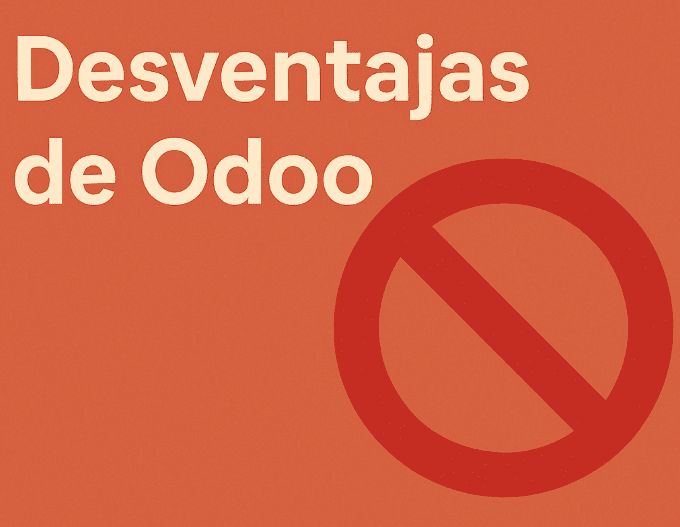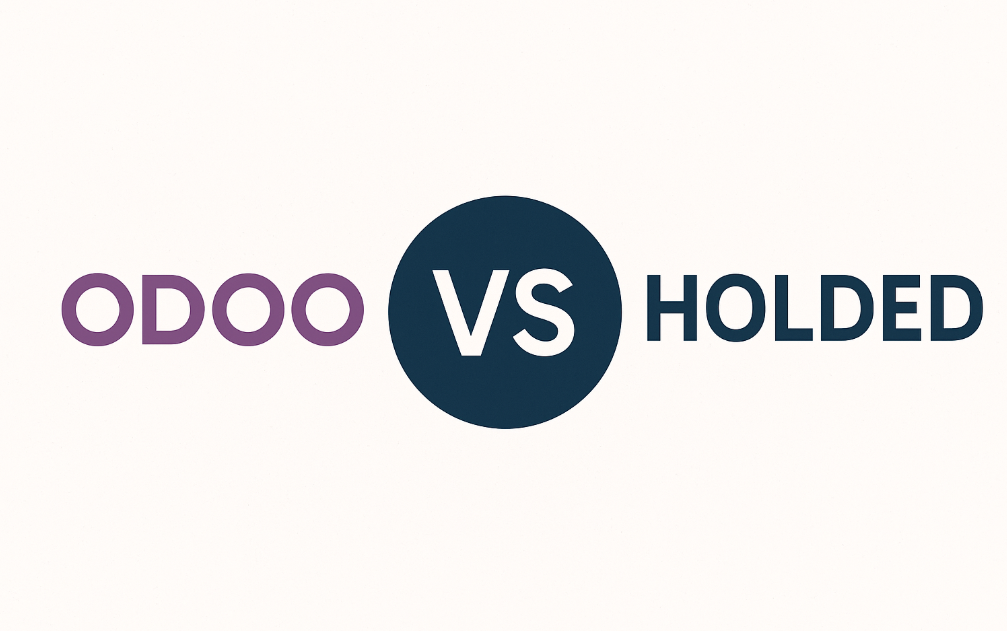If you're thinking about implementing an ERP system for your business, Odoo has likely appeared on your radar. This open-source platform is known for its flexibility and scalability, but, like any tool, it also has its drawbacks. Understanding these is crucial to making an informed decision, especially if you're looking for a system that perfectly fits your company's needs.
Disadvantages of Odoo
AI Agent for your business FREE
For a limited time only! Try it for free! SintonaiMaximize your sales, reduce your costs, and improve your customers' experience with our intelligent chatbots.
Although Odoo is an attractive option for many businesses, it has some weaknesses that are important to consider before adopting it:
1. Steep learning curve
One of the main challenges when using Odoo is that it can be difficult to learn, especially if your team has no prior experience with ERP systems. Its interface is extensive and modular, meaning each module has its own operating logic. This can be confusing at first and require additional training for employees to use it effectively.
Additionally, unlike more intuitive systems like Holded or QuickBooks, Odoo requires more detailed configuration to adapt to the specific needs of each company, which can increase implementation time.
2. Hidden costs and pricing complexity
Although Odoo is marketed as an affordable ERP system thanks to its free community version, costs can quickly increase if you need advanced features. Many critical modules for large businesses, such as advanced inventory management, manufacturing, or marketing, require additional subscriptions or the expensive enterprise version.
| Feature | Odoo Community | Odoo Company |
|---|---|---|
| Initial cost | Gratuitous | Paid |
| Technical support | Not included | Including |
| Advanced Features | Limited | Included |
| Updates | Self-managed | Automatic |
3. Complex customization
One of Odoo's greatest strengths is also one of its main weaknesses. Because it's highly customizable, it can be difficult to configure properly without the help of specialized developers. This means that in the long run, you could face additional costs for consulting and custom development.
Additionally, version upgrades can be complicated if you have made a lot of customizations, which can lead to compatibility issues and high maintenance costs.
AI Agent for your business FREE
For a limited time only! Try it for free! SintonaiMaximize your sales, reduce your costs, and improve your customers' experience with our intelligent chatbots.
4. Lack of direct support for the community
The Odoo community is large and active, but this isn't always enough when you need a quick solution to a critical problem. While enterprise users have access to professional technical support, community users rely primarily on forums and online groups, which can be slow and unreliable in critical situations.
💡 Tip: If your company doesn't have an in-house technical team, you'll likely need to hire an Odoo partner for personalized support.
5. Limited integrations outside the Odoo ecosystem
Although Odoo is very powerful when used within its own ecosystem, it can be difficult to integrate with other external systems, especially if they are not open source. This can become a limitation if your company already uses specialized tools for CRM, e-commerce, or project management that don't have native modules in Odoo.
What is Odoo's weakness?
Odoo's main weakness is its complexity in customization and the lack of rapid support for the community version. Furthermore, although it's modular and flexible, it's not always the most economical option when considering long-term costs, including customizations, maintenance, and training.
Is Odoo recommended?
Odoo is recommended for companies looking for flexibility and customization at a reasonable cost, as long as they have the technical resources to manage it properly. However, for small businesses without technical experience, simpler options like Holded or Zoho ERP may be more suitable.
What are the disadvantages of ERP in general?
ERP systems, in general, present some common challenges that also apply to Odoo:
- High initial cost: Implementation and customization are often expensive.
- Learning curve: They require training so that employees can use them correctly.
- Complexity in integration: They do not always connect easily with other external systems.
- Risk of dependency: Once implemented, it is difficult to switch to another system without significant disruption.
What are the limitations of the Odoo community?
The community version of Odoo is very popular, but it has some important limitations:
- Lack of technical support: Does not include official assistance.
- Limited Functions: It lacks some advanced features available only in the enterprise version.
- Manual updates: It requires the user to manage updates, which can be complicated.
- Security: The responsibility for maintaining system security rests entirely with the user.
Conclusion
Odoo is a powerful and flexible option for businesses looking for customization and scalability, but implementing it requires time, resources, and technical expertise. Before making a decision, be sure to consider all costs, both initial and long-term, as well as the limitations of the community version.








